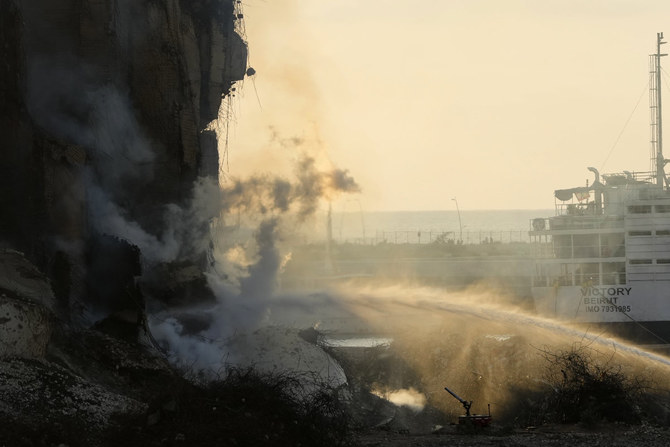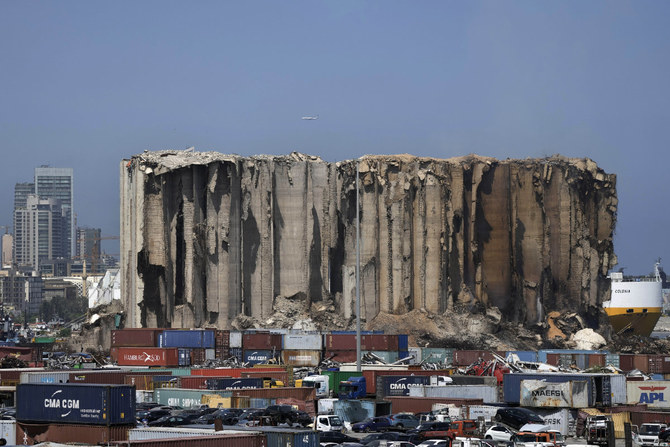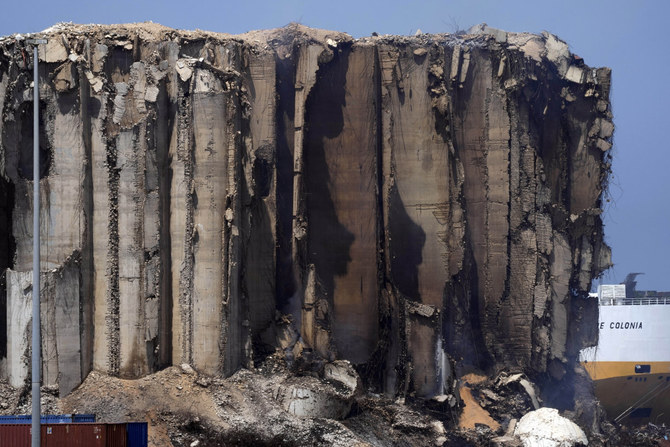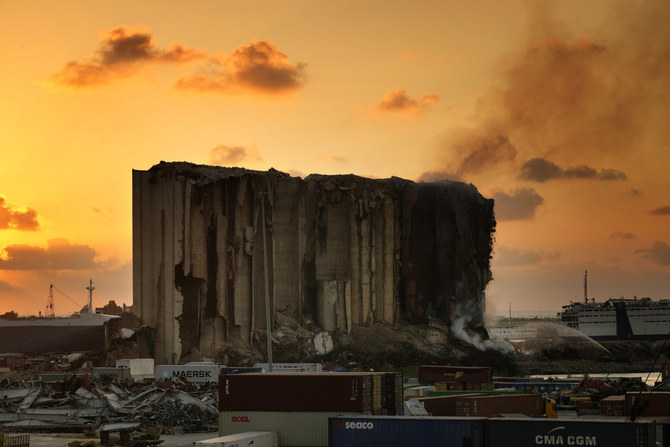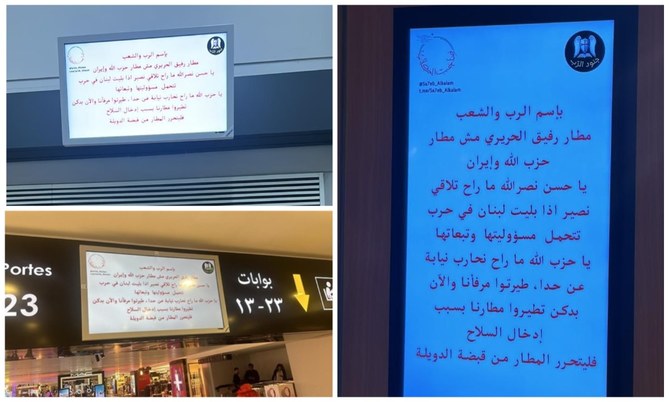BEIRUT: A massive silo holding thousands of tons of grain at Beirut port is at risk of collapse because of a fire that has been smoldering for weeks amid Lebanon’s summer heat.
Flames and thick black smoke could be seen rising from the silo after the blaze flared up on Friday.
The fire prompted a warning by Lebanon’s Prime Minister Najib Mikati to “workers and members of the civil defense and the fire brigade not to approach the location for their safety and to avoid endangering their lives.”
Recent high temperatures are believed to have caused wheat in the silo — one of two massive structures that withstood the deadly blast at Beirut’s port two years ago — to ferment, igniting thousands of tons of grain.
Reports by the ministries of interior, economy, public works and environment have warned that “parts of the left side of the silo might be at risk of collapse.”
The threat to the silo is causing growing alarm among port workers and management of the facility.
Smoke and flames at the site also revive the painful memory of the deadly explosion that shook the port on Aug. 4, 2020.
Caretaker Interior Minister Bassam Mawlawi has asked the fire brigade and civil defense to immediately start “cooling down” the wheat silos.
While the Lebanese look on helplessly as the last of the wheat stored in the silo burns, mills and bakeries around the country are struggling with an acute shortage of subsidized flour used to make Lebanese pita bread.
Caretaker Economy Minister Amin Salam said that 50,000 tons of wheat will arrive in Lebanon in the coming 10 days, ensuring a six-week supply.
Seven mills out of 11 have closed because they ran out of subsidized wheat, according to a bakery owners’ syndicate.
The presence of more than 500,000 tourists in Lebanon is adding to the strain on bread supplies, it added.
Meanwhile, the silo fire has revived simmering tensions between families of the port blast victims and government bodies.
Last April, government agencies recommended the silos be demolished due to the risks the structures pose to the surrounding area.
However, families and activists reject the demolition, saying that it will destroy “one of the main landmarks of the biggest explosion witnessed by Lebanon,” according to the Order of Engineers.
The silos “stand as a witness to a crime that affected everyone,” it said.
The Order of Engineers has called for work to “consolidate the affected silos.”
Experts say that the fire will die down eventually, but have warned against using water to fight the blaze, saying this might accelerate the fermentation process.
Political, security, judicial and military officials continue to blame each other for the port explosion.
Judicial investigations into the crime were suspended last November, due to political interventions and lawsuits filed against judge Tarek Bitar, who is heading the inquiry.
Defendants, including former MPs and ministers, are calling for Bitar to be removed from the case.
In a briefing submitted to the Security Council on Thursday, the UN special coordinator for Lebanon, Joanna Wronecka, highlighted “the absence of progress in the judicial measures related to the Beirut port explosion case, which further saddens the families of the dead and wounded.”
Wronecka demanded that “hindrances obstructing the judicial course be removed, and a comprehensive and transparent investigation into the case be carried out.”



